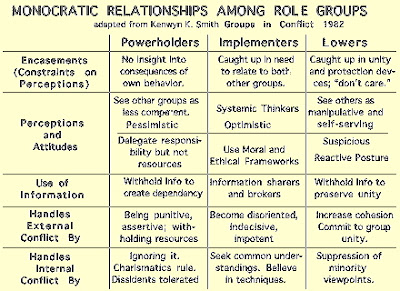Both teachers and students want science to be authentic, challenging, and engaging. How do you make this happen? -- ASCD Twitter entry, link to source.
Noble aims no doubt: the kind that warms the hearts of the technically challenged in any field. Leadership cadres are not infrequently composed of no minute proportion of those once-upon-a-time competent persons elevated -- according to the Peter Principle -- beyond their level of competence. Such governing groups tend to rest confident of having done a day’s (a meeting’s) work when they formulate goal statements that ring of sound public relations planning. | |
(P. Bruegel, the Elder) |
Who would reject as undesirable -- using the ASCD examples -- such outcomes as authenticity, challenge, and engagement as goals for school curriculum? But two problems tend to be sloughed off as merely technical, i.e. to be left to subordinates whose burden it will be to try to implement the pursuit of such Holy Grails without knowing their targets or the unavoidable costs involved in achieving them.
Of course, should these technicians threaten to spend more than a pittance of resources researching these problems, i.e. target consensus and feasible implementation, budgets can be restricted to what is politically possible, i.e. to levels that will not raise objections from external powers, equally technically challenged, whose objections might threaten the continued incumbency of the leadership.
So, for example, the “American public” -- read “strong political influencers” -- is concerned about terrorism and lawlessness, but apparently more concerned about the high costs, both to budgets and individual convenience, of technically efficient approaches to dealing with them, e.g. intensive surveillance and inconveniences to personal freedoms. (For more on problems with the formulation of goal statements, see Achieving Educational Goals: The Basic Model)
This situation illustrates the Rule of Imminence: the more distant the threat, the greater the cost discount (unless the more distant cost is vastly greater than the nearer, e.g. nuclear conflict vs. loss of control over a market.). So it is that defense industries exaggerate imminent possibilities of US involvement in foreign armed conflict, while their competitors beat warning drums about domestic infrastructure failures.
Educational and political leaders play this out as, for example in the recent past, a matter of trying to raise graduation rates by changing curriculum for fear of loss of national competitiveness. Forget about other so-called more important influences on a child’s school success. Those are likely cost-enhancing technical quibbles by politically insensitive squints. Defining school goals are the leadership’s task!
Wadoo, zim bam boddle-oo,
Hoodle ah da wa da,
Scatty wah !
(- 1935, Ira Gershwin, It Ain't Necessarily So)
For a list of related essays with links dealing with educational goals. see More on Educational Goals
Cordially
--- EGR










